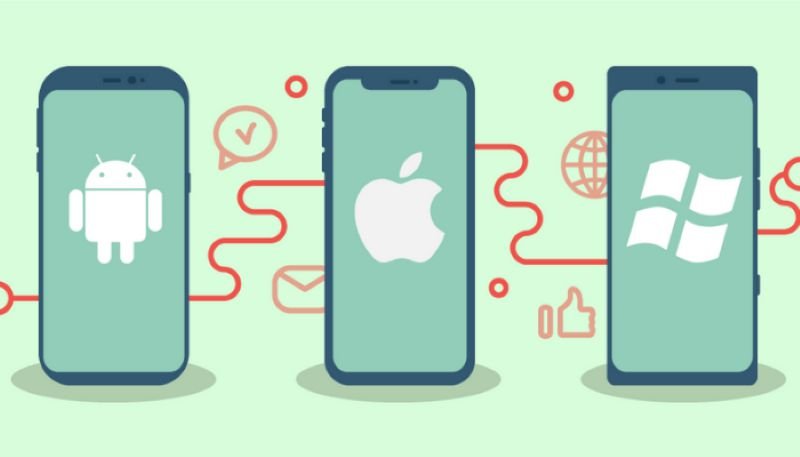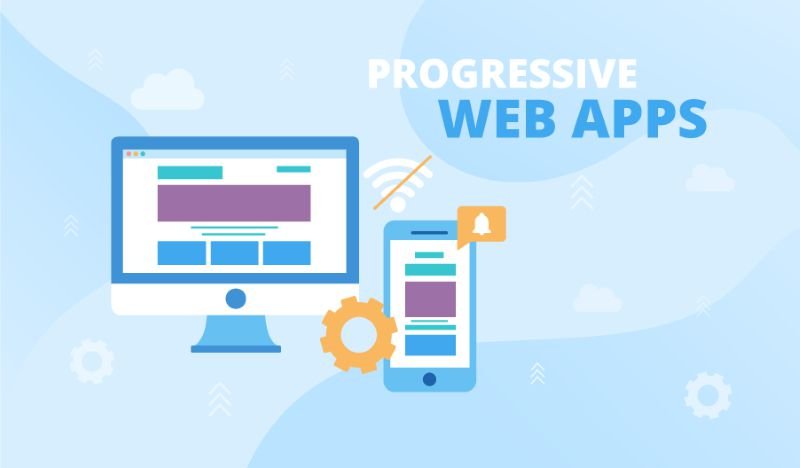When developing a mobile app for your business, you need to decide what type of app to create. There are three main types: native apps, web apps, and hybrid apps.
Each type of app has its own advantages and disadvantages. Native apps offer the best performance and user experience, but they are the most expensive to develop. Web apps are less expensive to develop, but they may not offer the same level of performance or user experience. Hybrid apps are a compromise between native apps and web apps.
The best type of app for your business will depend on your specific needs and budget.
Now let’s learn more details!
What are native app?
A native app is an application that is developed specifically for a particular mobile operating system (OS). For example, there are native apps for Android, iOS, Windows Phone, etc. Native apps cannot be used on multiple platforms.

Technology:
Each OS platform uses its own programming language to develop native apps. For example:
- Android: Java, Kotlin
- iOS: Swift, Objective-C
- Windows Phone: C++, C#
Advantages:
- Higher performance and stability compared to other types of apps.
- Takes full advantage of the device’s hardware and features.
- Intuitive user interface that is tailored to each platform.
- Direct access to device hardware such as camera, GPS, Bluetooth, etc.
Disadvantages:
- Higher development cost because it needs to be developed separately for each platform.
- More complex development process.
- Difficulty in maintaining and updating for multiple platforms.
- Larger app size compared to other types of apps.
Examples:
- Facebook, Instagram, Snapchat (native apps for Android and iOS)
- Google Maps, Gmail (native apps for Android, iOS and Windows Phone)
What is a web application?
A web app is an application that works similarly to a native app but is accessed through a web browser on a mobile device. They are not standalone applications in the sense that they do not need to be downloaded and installed on your device. Instead, they are responsive websites that adapt their user interface to the device the user is using.

Technology: HTML5, CSS, JavaScript, Ruby, and similar web programming languages are used to develop web apps.
Advantages:
- Cross-platform compatibility: Since web apps are web-based, they do not require customization for different platforms or operating systems. This helps reduce development costs.
- Ease of use: There is no need to download and install the app. Web apps do not take up storage space on your device.
- Easy maintenance: Updates to the web app can be made directly through the web, users do not need to download updates from the app store.
Disadvantages:
- Browser dependency: Web apps depend on the browser used on the device. Some features may be available on one browser but not on another, leading to an inconsistent user experience.
- Internet connection: Web apps require an internet connection to work. Even if the app has an offline mode, the device still needs an internet connection to back up data, provide new data, or refresh content.
Examples:
- Facebook Lite
- Google Maps
- Gmail
What is a hybrid app?
A hybrid app is a combination of a web app and a native app. It has the look and feel of a native app, can be accessed offline, but is built using web technologies.
Hybrid apps use a combination of web technologies and native APIs. They are developed using technologies such as: Ionic, Objective C, Swift, HTML5
Advantages:
- Cost and time savings: Hybrid apps can be developed much faster and cheaper than native apps.
- Fast loading speed: Hybrid apps load faster than web apps.
- Consistent user experience: Hybrid apps provide a consistent user experience across multiple platforms.
- Easy maintenance: Hybrid apps use a single codebase, making them easier to maintain.
Disadvantages:
- Performance: Hybrid apps may not achieve the same high performance and speed as native apps.
- Features: Hybrid apps may not be able to access all the features and functionality of the device as native apps.
Examples:
Web Apps vs. Native Apps vs. Hybrid Apps: Which is better?
After understanding the differences between Native App, Hybrid App, and Web App, Nexle will summarize the key highlights of each to facilitate easy differentiation:
| Criteria | Native App | Hybrid App | Web App |
| Interface | User-friendly, meets the standards of each operating system | May differ from the native version | May differ from the native version |
| Programming language | Swift, Objective-C (iOS), Java (Android) | JavaScript, HTML, CSS | JavaScript, HTML, CSS |
| Performance | High | Lower than Native App | Depends on internet connection and browser |
| Compatibility | Separate code for each platform | Shared code for multiple platforms | Shared code for multiple browsers |
| Connectivity | Works both online and offline | Works both online and offline | Only works online |
| Distribution channel | App stores | App stores | Accessed directly through the website |
| Cost | High | Medium | Low |
How to Choose the Right Type of App for Your Business
When developing a mobile app for your business, choosing the right type of app is crucial for the project’s success. Here are some factors to consider to make an informed decision:
Time:
- Need the app urgently: Web app is the best choice because of its faster development time due to the use of a single codebase for multiple platforms.
- Have plenty of time: Native app can be developed to optimize performance and user experience for each specific platform.
Resource:
- Limited resources: Web app or hybrid app is a reasonable choice because of lower development costs and wider user reach.
- Have ample resources: Native app can be invested in to provide a premium experience and optimize performance.
Performance:
- Prioritize performance: Native app is the best choice because it takes full advantage of the device’s hardware and software capabilities.
- Acceptable performance: Web app or hybrid app can meet the needs if it does not require high performance.
Feature:
- Need many features: Native app can meet all requirements for features and customization capabilities.
- Only need basic features: Web app or hybrid app can meet basic needs with lower development costs.
Target market:
- Target market uses multiple platforms: Web app or hybrid app can reach more users.
- Target market uses one main platform: Native app can optimize the experience for that platform.
Conclusion
Ultimately, the choice of mobile app type is not a one-time decision. You can always choose to build another type in the future, depending on the needs of your users.
To get advice on developing the right type of app, you can contact Nexle at Hotline +1 951 888 9080.
Table Of Content


